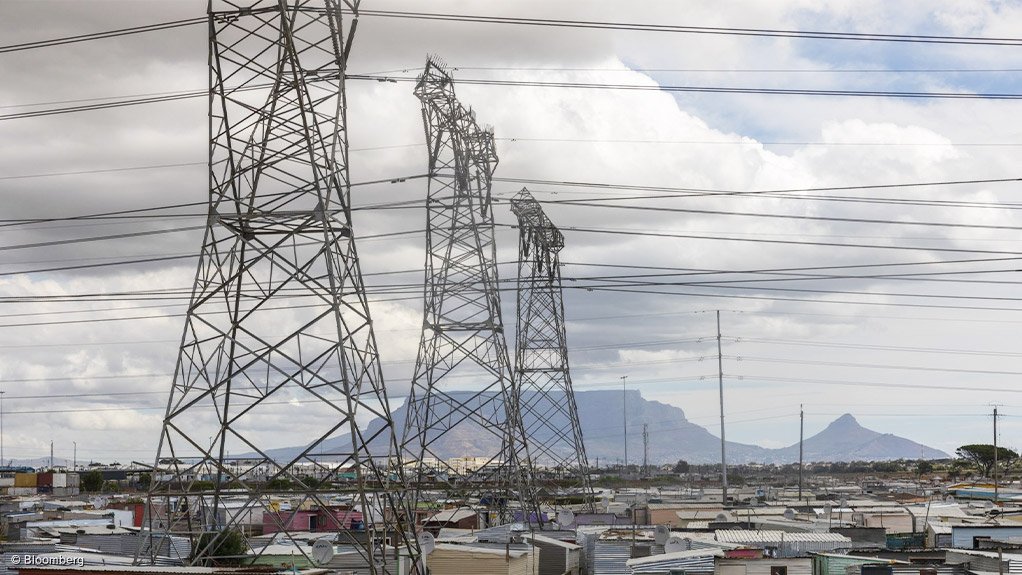Calls are growing for government to overhaul its free basic energy (FBE) scheme amid indications that fewer than a quarter of qualifying indigent households are benefiting from the 50-kWh-a-month currently on offer and with the scale of the grant being described as insufficient to reduce poverty and inequality.
Public Affairs Research Institute senior researcher Dr Tracy Ledger argues that, given evidence showing electricity’s developmental returns to be as large or larger than any of South Africa’s other social welfare interventions, universal access should be elevated to the same level as access to education.
“I think we need to start thinking about electricity in the same way that we think about education.
“We understand that even though the benefits of education accrue to the individual, overall, the whole of society and the whole of the economy benefits . . . it would be extremely short-sighted of any government to say, ‘oh, well, if you're too poor to pay for an education, you can't have one’,” Ledger argued during a Presidential Climate Commission dialogue on energy poverty.
She also reiterated the call she and co-author Mahlatse Rampedi made in their book Hungry for Electricity for the monthly FBE allocation to be increased to 350 kWh, which they argue to be the minimum threshold at which electricity begins yielding meaningful socioeconomic benefits.
“The main reason why grid-connected households cannot access that amount of electricity currently is because of the cost,” she explained, indicating that it currently cost a low-income household with a pre-payment metre about R800 to buy R350 kWh.
“To put that in context, 55% of South African households have a monthly income of less than R6 000 a month, which means R800 rand a month is nearly 15% of their monthly income.”
Many poor households are, thus, currently having to choose between electricity and food, which is increasing levels of food insecurity and malnutrition.
Compounding matters is the fact that only 25% of indigent households are receiving their FBE allowance, owing to the fact that many municipalities are failing to maintain indigency registers and are using funds specifically provided for FBE under the equitable share elsewhere.
The National Treasury’s Malijeng Ngqaleni acknowledged the monthly 50 kWh to be inadequate but said increasing the allocation under the current arrangement would not alleviate energy poverty, as its analysis shows that many municipalities are currently diverting the funds away from the intended recipients.
A total of R57.6-billion has been set aside for FBE for the current three-year expenditure period to 2025/26, but the National Treasury was concerned that there could be “significant fiscal leakage”.
Ledger agreed that implementation had to be materially improved before increasing the size of the benefit and also proposed major, albeit controversial, changes to the way the scheme is implemented in future.
Eskom, she noted, should be supplying about five-million indigent households, but was supplying only about 800 000 currently, as the utility is reliant on the indigent list being supplied to it by the municipalities.
“I think there's a good case to be made for diverting that part of the equitable share that should end up in Eskom anyway, directly to Eskom, and let Eskom register those indigent households.”
Eskom’s Onicah Rantwane reported that the utility was indeed engaging with government on the possibility of ring-fencing the costs allocated for customers in Eskom-supplied areas and having those amounts paid to Eskom directly.
However, she argued that there was also an urgent need to restructure the retail tariff to reflect unbundled costs, as changes under way in the electricity sector meant that pro-poor policies, such as the inclining block tariff (IBT), would begin penalising poor consumers over time.
“Customers investing in alternative energy sources and energy efficiency are usually relatively affluent. Under the IBT, these customers will pay a lower block rate based on their lower consumption and will, thus, be benefitting from a subsidy intended for the indigent,” Rantwane noted.
She also stressed that even under current circumstances low consumption was not necessarily reflective of a customer being poor, with multiple shack dwellings, for instance, being exposed to high block unsubsidised energy rates.
“Tariffs need to be unbundled to reflect the cost structure. Fixed costs must be recovered through fixed tariff structures and variable costs through variable cost structures,” she outlined.
There was also a need, she argued, for a national subsidy framework for all subsidies, including electricity subsidies.
Such a framework would include clear principles on how cross subsidies should be targeted to benefit indigent households.
EMAIL THIS ARTICLE SAVE THIS ARTICLE ARTICLE ENQUIRY
To subscribe email subscriptions@creamermedia.co.za or click here
To advertise email advertising@creamermedia.co.za or click here











